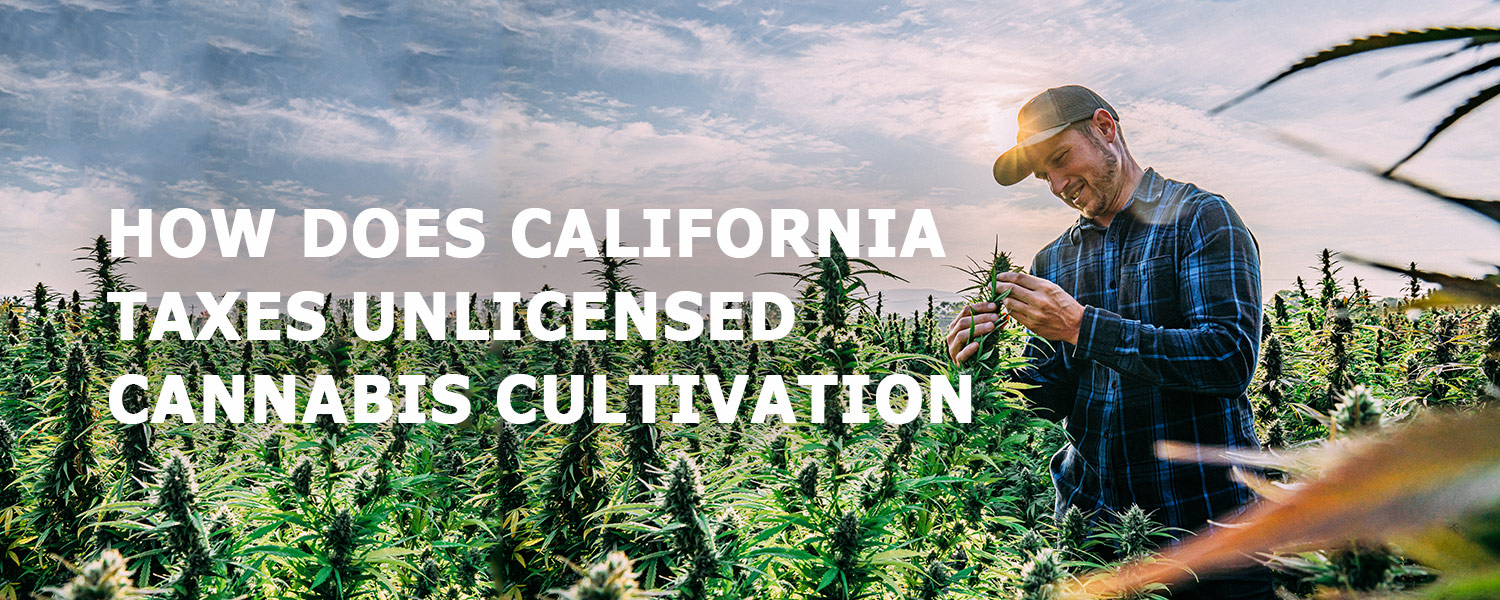How California Taxes Unlicensed Cannabis Cultivation
Just because California suspended the cultivation tax on cannabis, don’t think that as an unlicensed grower you have nothing to worry about.
Legal California cannabis businesses have been complaining about taxes, which in parts of the state are among the highest in the nation. This is one of the reasons why the black market continues to operate in California. But with the State stepping up its enforcement efforts to uncover and prosecute illegal cannabis operators, the State is hoping to help legal operators by eradicating non-compliant operators.
Suspension Of Cannabis Cultivation Tax
To help licensed cultivators, the State Of California enacted Assembly Bill 195 (Stats. 2022, ch. 56) into law which revised the Cannabis Tax Law. Starting July 1, 2022 the cultivation tax no longer applies to cannabis or cannabis products entering the commercial market. Cannabis enters the commercial market when the cannabis or cannabis products pass the required testing and quality assurance review.
- Distributors and manufacturers (including microbusinesses authorized to distribute or manufacture) are no longer required to collect the cultivation tax from cultivators.
- Cultivators (including microbusinesses authorized to cultivate) are no longer responsible for paying the cultivation tax to manufacturers or distributors when cultivators sell or transfer cannabis to another licensee.
- Cultivation tax is not due on cannabis or cannabis products entering the commercial market on or after July 1, 2022, even if you received cannabis from a cultivator prior to July 1, 2022.
- Any cultivation tax collected on cannabis that enters the commercial market on or after July 1, 2022, must be returned to the cultivator that originally paid the cultivation tax.
But this suspension only applies to licensed growers.
Cultivation Tax On Unlicensed Growers
To penalize unlicensed cultivators, the State Of California revised the Cannabis Tax Law so that unlicensed cultivators would have to face hefty tax bills despite the tax relief afforded to licensed cultivators. Cannabis Tax Section 34015.1(a)(1) imposes a tax liability on the unlicensed person required to be licensed with DCC who possesses, keeps, stores, or retains for the purpose of sale, or sells or offers to sell any cannabis or cannabis products. Section 34015.1(a)(2)(A) requires the department to ascertain “as best it may” the category and amount of the harvested cannabis deemed as having entered the commercial market, and the average market price or gross receipts, based on any information within the department’s possession or that may come into its possession, of the retail sale of the cannabis or cannabis product deemed as purchased from a cannabis retailer.
Section 34015.1(a)(2)(A) provides that if a penalty is to be imposed, the penalty shall be 25% of the amount of tax or $500.00, whichever is greater.
Illustration Of How The State Calculates Liability
Let’s assume that you operated an unlicensed cannabis cultivation activity and you were raided by the authorities. The authorities will take a count of the plants seized (assume 100), assume 16 ounces of cannabis per plant and apply a current market value (assume $160.00) to the calculated ounces to arrive in arriving at a Gross Receipt Value Of Seized Cannabis of $256,000. Applying the 25% penalty rate, under this illustration, the liability to the State is $64,000.
What Should You Do?
Not only is the State’s calculation of liability arbitrary but also under the law, the liability could be abated due to “reasonable cause”. If you thought as an unlicensed grower you had no liability and now you find yourself under investigation, protect yourself by engaging the cannabis tax attorneys at the Law Offices Of Jeffrey B. Kahn, P.C. located in Orange County (Irvine), Los Angeles County and other California locations. Let us work out the best possible result. Also, if you are involved in crypto currency, check out what a bitcoin tax attorney can do for you.


